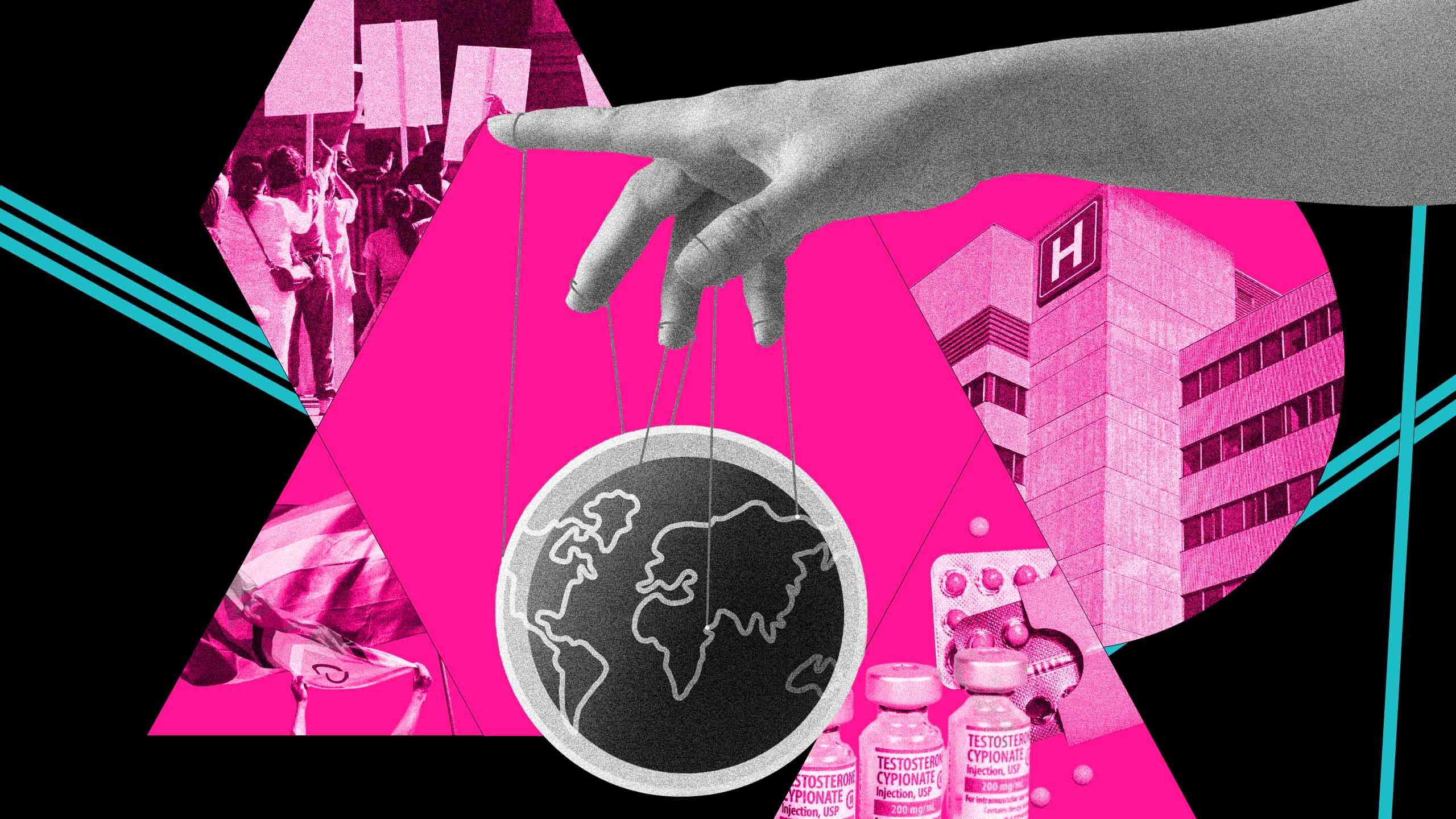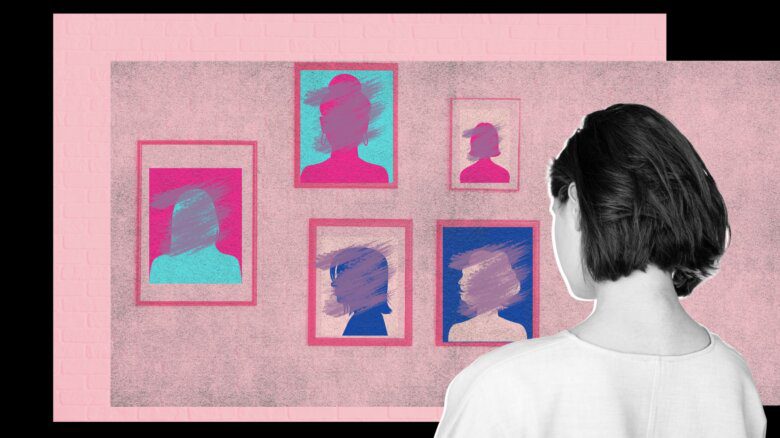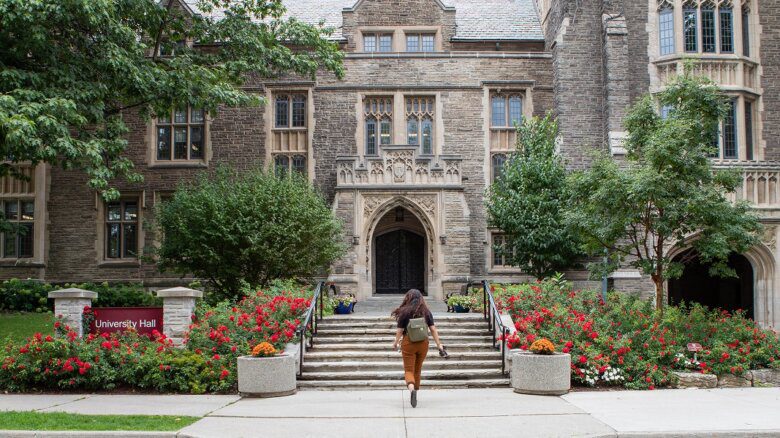It has become something of a social justice cliché to say that “all oppressions are connected,” but as the tide of anti-trans sentiment and legislation has risen ever higher in recent months, it seems increasingly clear that the practical implications of this idea have not been well understood by the general public. Why else would so many so-called feminists be celebrating the recent U.K. Supreme Court decision that trans women do not legally “count” as women—even if they have undertaken the necessary steps to change their gender designation on their identification documents?
This decision, which was made without allowing any trans women to provide oral evidence, is likely to have far-reaching impacts that extend beyond the United Kingdom, given that the U.K. court is often referred to as a precedent by courts in other countries such as the United States and Canada. The combination of this development with other anti-trans laws and policies currently sweeping across multiple jurisdictions worldwide is a direct and immediate attack on trans people’s—and particularly trans women’s—ability to exist and move freely in the world without fear of discrimination and violence, which was always an open question in the best of times.
Yet it is not only trans people who ought to feel concerned about the swell of anti-trans legal and social actions. Indeed, anyone who cares about women’s rights, lesbian and gay and bisexual rights, migrant justice, privacy rights, access to healthcare, reproductive and sexual health and education or a host of other broadly significant issues, should feel alarmed by these developments.
This is because the precedents set by anti-trans movements in society are, at their core, driven by the idea that the government and private institutions can and should have the power to police the bodies of individual people and withhold health and social services that are necessary for life. Sadly for everyone, the self-identified “feminists” who have contributed so enthusiastically to the erosion of trans rights worldwide have helped to strengthen the same authoritarian, misogynist movements that will likely soon come for women’s rights and freedoms as well.
Following the playbook of authoritarian scapegoating through history, the anti-trans movement has most often attacked trans rights by claiming that trans people (and most especially trans women) are a minority of depraved lunatics, wolves in sheep’s clothing who have seized special privileges for ourselves at the expense of common decent people—a story that disturbingly echoes discriminatory tropes about other minorities such as the ancient antisemitic claims about Jewish people, racist fear-mongering about immigrants and the homophobic claim that gays and lesbians prey on children.
Historians and scholars of moral panics have frequently observed that these tropes are easily manipulated to stir up fear and hysteria in the general population no matter who the scapegoat happens to be. This allows authoritarian leaders to then easily expand their power by passing laws and creating criminalizing systems that supposedly target “dangerous” minorities in order to protect the public. In reality, these laws and systems often undermine important rights and freedoms for everyone, such as the right to privacy or to the right to due process when accused of a crime—and this damaging effect often remains in place long after the initial moral panic has faded.
Take for example the U.S. Federal Administration’s recent executive orders banning trans women and girls of all ages from participating in women’s sports. While the executive order uses the rhetoric of protecting women as justification, its enforcement in real life has serious and frightening implications because it empowers institutions like schools and sports leagues to demand access to inspect athletes’ private health information, or perhaps even their physical bodies—including athletes who are school-aged children. This won’t only affect children who identify as trans, but rather all children who participate in sports, creating huge openings in child safeguarding for actual adult predators to exploit, and creating a society that is overall less safe and more invasive for kids to live in.
“Bathroom bills” and other legislation restricting trans women’s access to gendered public spaces such as women’s washrooms, locker rooms and shelters for survivors of domestic violence are likely to have a similar effect: they force vulnerable women and girls, whether or not they are trans, to grant institutions access to inspect their bodies. They also encourage police, security guards and even private citizens to enter such spaces and detain, arrest and otherwise harass any person suspected of being trans (whether or not this is the case)—which has unfortunately already happened many times in recent months and years.
“How ironic that some feminists have pushed us toward a world in which women and children must be inspected and surveilled in order to participate in public life.”
For nearly a century, the modern feminist movement has supposedly fought for a world in which women are free from harassment in public. How ironic it is that some feminists have instead pushed us all toward a world in which women and children must now be inspected, monitored and surveilled in order to participate in public life at all.
Public participation, privacy and freedom from harassment are not the only rights at stake in the anti-trans moral panic, however. The right to reproductive and sexual health services are also intrinsically tied to trans healthcare, because all three of these rights are based on the idea that people deserve both the freedom to decide what to do with their own bodies and the healthcare information and services needed to make those decisions.
It is no coincidence that the anti-trans movement, despite the much-publicized participation of some self-identified “feminists,” is at its core a movement championed by major conservative political parties and conservative lobby groups—institutions that seek to ban not only trans healthcare such as gender-affirming hormone therapy and surgeries, but also the right to contraception and abortion.
Much has been made of how recent bans in Canada, the U.S. and the U.K. on gender-affirming care for youth supposedly protect young people by forcing them to go through “natural” puberty and thus preventing the possibility of regret about gender transition—which ignores the fact that many trans people regret equally the permanent impacts of their “natural” puberty. As it happens, pregnancy is also a “natural” biological process, and a common conservative claim is that people (especially young people) may regret abortions, which supposedly justifies forcing them to carry a pregnancy to term.
As a society, we need to decide: Do we believe that people have the right to bodily autonomy or not? Trans people are not a “special case,” but rather canaries in the coal mine for this issue. Sooner or later, the decisions applied to us will come back to help or haunt the rest of society.
For those unconvinced by the arguments above, or for those who simply do not care about women’s rights and women’s health, it may be helpful to consider this: The anti-trans movement’s ultimate aims have been clear for years now, and they are no less than the complete eradication of trans people from public life, to paraphrase conservative American political commentator Michael Knowles. To do so, the anti-trans movement has taken more pages from the authoritarian playbook: the sex panic and attacks on freedom of expression.
Sex panics, like moral panics, manipulate public anxieties in order to increase the power of the ruling class. However, sex panics particularly focus on the fear of changing norms around sexuality. By creating laws aimed at banning expressions of sexuality, authoritarian leaders undermine freedom of expression in general—because, when framed in a certain way, a huge range of speech and other forms of expression can be construed as sexual or obscene. Already, even the word “sex” is censored on most major social media platforms, which is the direct result of legislation in the United States, which has had major repercussions for anyone trying to talk about sex education, sexual health or LGBTQ2S+ rights online.
Project 2025, the political document that is now widely understood to form the basis of much of the current U.S. federal administration’s governance strategy, seeks to enact bans on pornography. Project 2025 also deems the very act of being trans pornographic, and asserts that being trans should therefore be made illegal, an assertion that now seems on its way to being made law (or at least executive order) in the U.S.
If this were to become a precedent, one wonders what other forms of human life might be deemed pornographic and therefore punishable by law: Being a gay man, maybe? Perhaps being a single woman walking alone in public? The sky is the limit.
When the news of the U.K. Supreme Court decision on trans women’s legal non-womanhood came out, many people mourned. Many others celebrated, jeering at our pain and asserting that a great victory for women’s rights had been won. I wish I could summon the energy to feel angry with them. The truth is, I mostly just feel pity—pity and dread.
It’s hard to watch lambs cheer on their way to the slaughterhouse.


 Why you can trust Xtra
Why you can trust Xtra


